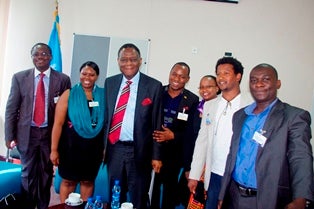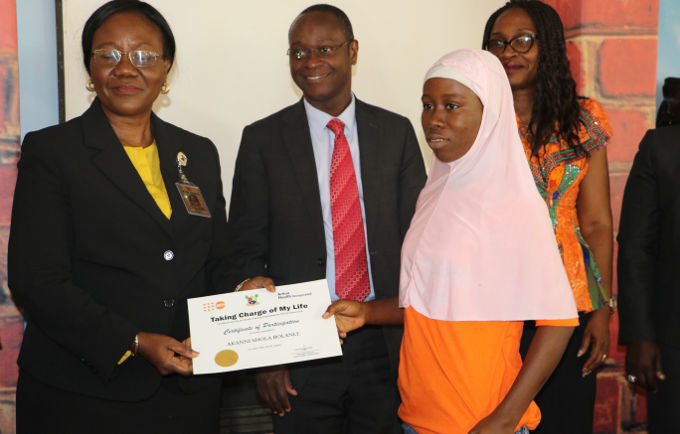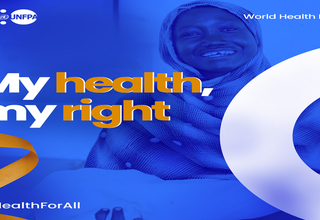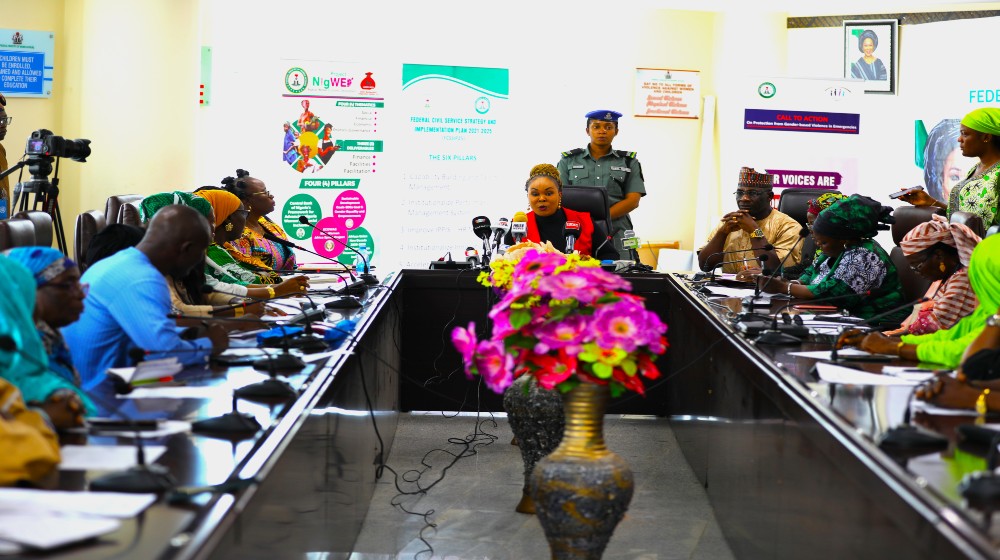“Eyin o lori re da (where are the fortunate people)? Awa re O (we are here)” was the greeting resonating throughout the graduation ceremony of 120 out of school girls in Ilaje community, Lagos State. The girls were beneficiaries of the AHI/UNFPA supported project “Expanding Access of Slum Dwelling Out-of-School Girls to Sexual and Reproductive Health (SRH) and Family Planning (FP) Services set out to educate out of school girls on their sexuality and reproductive health and to empower them with livelihood skills to take them out of the slums and fulfill their potential.
Grace (Right) shares a hug with a co-beneficiary
The graduation ceremony was euphoric and laced with an atmosphere of gratitude. Beneficiaries and their loved ones adorned smiles on their faces, laughed and danced at any moment they could. A beneficiary, Gloria, shared her story with us. “I dropped out of school at Grade 5 and was forced into trade by my grandmother” she said. At age 13, she learnt to prepare roasted fish and to bargain with interested buyers, many of whom may have been more interested in her than the fish being sold. By age 17, she had lived her whole life in the slum with little hope of liberation until now. Gloria was enrolled in the empowerment project and was one of the 120 girls, who received livelihood skills and business startup kits that should help take them out of the slums. These kits include fabricated ovens for those who learnt catering, cosmetic products for those who learnt cosmetics and beading materials for those who learnt hand crafts. The livelihood skills was an entry point for comprehensive sexuality education.

A happy beneficiary shares a hug with Adenike Esiet, Executive Director of Action Health Incorporated.
In his address, Mr. koffi Kouame, the Deputy Representative of UNFPA said “with 5 million out of school girls in Nigeria and Lagos State with the highest burden of 2 million, the project is a platform to give girls access to education outside the classroom so they are not left behind. In essence, we believe that the ability of all girls to fulfill their potential will contribute significantly to the success of the 2030 sustainable development goals”.
The graduation ceremony was a call to action to all policy makers, development partners and interested stakeholders to work to ensure that all girls, regardless of their status, age or communities, are empowered to access education in and out of the classroom.




